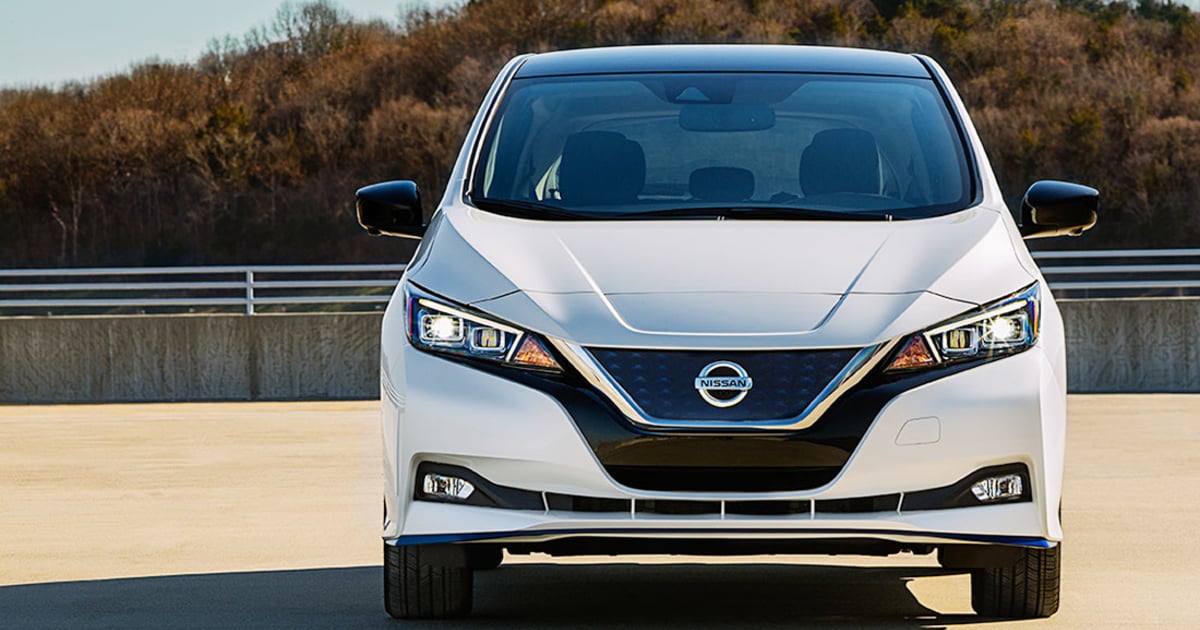
WASHINGTON — Car dealers looking to move more used electric vehicles off their lots say guidance is needed from the U.S. Treasury Department to confirm what’s included in the pre-owned-EV tax credit’s sales price cap.
As part of the Inflation Reduction Act, qualified buyers could get up to $4,000 for the purchase of an eligible used EV under Internal Revenue Code Section 25E. Vehicles must be at least two model years old and cost $25,000 or less, but they are not subject to the same stringent battery sourcing rules as the revamped tax credit for new sales of personal EVs, known as Section 30D.
The Treasury in December clarified what’s counted in the retail price for new EVs, specifying that “optional equipment physically attached to the vehicle at the time of delivery to the dealer” is included, while optional items added by the dealer as well as destination charges, taxes and fees are not. However, it did not specify what’s counted toward the sales price for used EVs.
“With the discussions I’ve had with dealers, they’re obviously having to make a judgment call as to what ‘sales price’ really means,” said Adam Neporadny, managing director in the national tax professional standards group at Forvis.
“Is it just the selling price that’s agreed upon that starts the transaction?” he said. Or “do you have to take into account things like taxes, tag and title — things that are at least going to be on every vehicle? Do you have to roll in doc fees or F&I products?
“All of these are questions left unanswered.”
The National Automobile Dealers Association said it has been advising franchised dealers about the credit’s requirements.
“NADA has also outlined the factors that will likely render many EV sales ineligible for this credit,” Jared Allen, a spokesperson for the association, said in a statement. “For this reason, our communications to dealers have highlighted the importance of determining, to the extent possible, whether a used vehicle credit may later apply when dealers purchase EVs for potential future sale.”
A Treasury spokesperson told Automotive News last month that the sales price issue “will be addressed in subsequent guidance.”
In the meantime, some dealers say they’re worried about getting it wrong — a concern that also has shrouded the new-EV tax credit, given its intricate eligibility constraints.
“There’s a trust concern,” said Tyler Slade, operating partner at Tim Dahle Nissan Southtowne in suburban Salt Lake City. “The last thing that we want to do is give guidance to our customers on what they qualify for, what they don’t qualify for, and then have that backfire.”
Slade said his dealership has stocked up on less-expensive used Nissan Leafs that could fall under $25,000, but employees have been cautious about telling customers whether a vehicle qualifies, in part because of the sales price ambiguity.
“We really need the government to be much more clear on this so that customers feel more confident in buying these vehicles,” he said.
In a statement to Automotive News, Nissan spokesperson Stephen O’Neil said the automaker is working with its dealers to keep them informed of revised IRS guidance as it becomes available.
“As with any new laws, we recommended that our dealers and customers consult with their own tax or legal professionals to understand its application to their unique circumstances,” he said.
Other dealers said they haven’t had many — or in some cases, any — instances of a customer or used EV qualifying.
Volkswagen dealer John Luciano said he has had only one used-EV transaction that fell under $25,000, from a customer who traded in a 2014 Chevrolet Camaro for a 2017 Tesla Model 3, but it’s unclear whether the tax credit will be applied.
“In selling it, we just flat told the customer, you need to get with your [certified public accountant],” said Luciano, owner of Street Volkswagen in Amarillo, Texas. “If he says you can get it, then take it off your taxes, but we don’t do it. We don’t file for it.”
Mike DeSilva, owner of Liberty Auto Group, a three-store group in New Jersey that sells Genesis, Hyundai, Kia and Subaru vehicles, said that while he assumes the used-EV tax credit’s sales price cap does not include fees, it’s proved to be “even more confusing than the new-car credits.”
“We don’t deal in a lot of used EVs to begin with; the ones that we do are all over $25,000,” he said. “And then there’s just a bunch of other requirements that go along with it.”
Those include caps on a buyer’s modified adjusted gross income and a requirement that it is the first time a vehicle is being sold as used to a qualified buyer since the law’s enactment on Aug. 16, 2022 — a restriction that could further constrain an already limited pool of eligible used EVs, such as older Leafs and Chevrolet Bolts.
“If it comes out later that a car was sold pre-owned prior — that it didn’t show up on a Carfax report — if that shows up later, is that something we’re liable for at this point?” DeSilva said. “What are we responsible to certify? That’s a concern.”

